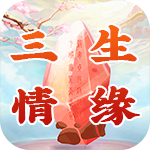1. 英文優美的句子 短語 諺語 修辭 形容詞 比喻 高考的
1.愛屋及烏 Love me, love my dog. 2.百聞不如一見 Seeing is believing.3.比上不足比下有余 worse off than some, better off than many; to fall short of the best, but be better than the worst. 4.笨鳥先飛 A slow sparrow should make an early start. 5.不眠之夜 white night 6.不以物喜不以己悲 not pleased by external gains, not saddened by personnal losses 7.不遺余力 spare no effort; go all out; do one's best 8.不打不成交 No discord, no concord. 9.拆東墻補西墻 rob Peter to pay Paul 10.辭舊迎新 bid farewell to the old and usher in the new; ring out the old year and ring in the new 11.大事化小小事化了 try first to make their mistake sound less serious and then to reduce it to nothing at all 12.大開眼界 open one's eyes; broaden one's horizon; be an eye-opener 13.國泰民安 The country flourishes and people live in peace 14.過猶不及 going too far is as bad as not going far enough; beyond is as wrong as falling short; too much is as bad as too little 15.功夫不負有心人 Everything comes to him who waits. 16.好了傷疤忘了疼 once on shore, one prays no more 17.好事不出門惡事傳千里 Good news never goes beyond the gate, while bad news spread far and wide. 18.和氣生財 Harmony brings wealth. 19.活到老學到老 One is never too old to learn. 20.既往不咎 let bygones be bygones 21.金無足赤人無完人 Gold can't be pure and man can't be perfect. 22.金玉滿堂 Treasures fill the home. 23.腳踏實地 be down-to-earth 24.腳踩兩只船 sit on the fence 25.君子之交淡如水 the friendship between gentlemen is as pure as crystal; a hedge between keeps friendship green 26.老生常談陳詞濫調 cut and dried, cliché 27.禮尚往來 Courtesy calls for reciprocity. 28.留得青山在不怕沒柴燒 Where there is life, there is hope. 29.馬到成功 achieve immediate victory; win instant success 30.名利雙收 gain in both fame and wealth 31.茅塞頓開 be suddenly enlightened 32.沒有規矩不成方圓 Nothing can be accomplished without norms or standards. 33.每逢佳節倍思親 On festive occasions more than ever one thinks of one's dear ones far away.It is on the festival occasions when one misses his dear most. 34.謀事在人成事在天 The planning lies with man, the outcome with Heaven. Man proposes, God disposes. 35.弄巧成拙 be too smart by half; Cunning outwits itself 36.拿手好戲 masterpiece 37.賠了夫人又折兵 throw good money after bad 38.拋磚引玉 a modest spur to induce others to come forward with valuable contributions; throw a sprat to catch a whale 39.破釜沉舟 cut off all means of retreat;burn one's own way of retreat and be determined to fight to the end40.搶得先機 take the preemptive opportunities 41.巧婦難為無米之炊 If you have no hand you can't make a fist. One can't make bricks without straw.42.千里之行始于足下 a thousand-li journey begins with the first step--the highest eminence is to be gained step by step 43.前事不忘后事之師 Past experience, if not forgotten, is a guide for the future. 44.前人栽樹后人乘涼 One generation plants the trees in whose shade another generation rests.One sows and another reaps. 45.前怕狼后怕虎 fear the wolf in front and the tiger behind hesitate in doing something 46.強龍難壓地頭蛇 Even a dragon (from the outside) finds it hard to control a snake in its old haunt - Powerful outsiders can hardly afford to neglect local bullies. 47.強強聯手 win-win co-operation 48.瑞雪兆豐年 A timely snow promises a good harvest. 49.人之初性本善 Man's nature at birth is good. 50.人逢喜事精神爽 Joy puts heart into a man. 51.人海戰術 huge-crowd strategy 52.世上無難事只要肯攀登 Where there is a will, there is a way. 53.世外桃源 a fictitious land of peace away from the turmoil of the world; 54.死而后已 until my heart stops beating 55.歲歲平安 Peace all year round. 56.上有天堂下有蘇杭 Just as there is paradise in heaven, ther are Suzhou and Hangzhou on earth 57.塞翁失馬焉知非福 Misfortune may be an actual blessing. 58.三十而立 A man should be independent at the age of thirty.At thirty, a man should be able to think for himself. 59.升級換代 updating and upgrading (of products)60.四十不惑 Life begins at forty. 61.誰言寸草心報得三春暉 Such kindness of warm sun, can't be repaid by grass. 62.水漲船高 When the river rises, the boat floats high. 63.時不我待Time and tide wait for no man. 64.殺雞用牛刀break a butterfly on the wheel 65.實事求是seek truth from facts; be practical and realistic; be true to facts 66.說曹操,曹操到Talk of the devil and he comes. 67.實話實說speak the plain truth; call a spade a spade; tell it as it is 68.實踐是檢驗真理的唯一標準Practice is the sole criterion for testing truth. 69.山不在高,有仙則名'No matter how high the mountain is, its 。
2. 類比修辭的英語句子
Analogy(類比):將兩個本質上不同的事物就其共同點進行比較,是通過比喻手法的綜合運用幫助說明道理或描述某種復雜情況。
例:Appropriate praise to a child is what the sun is to a flower。
恰當的贊揚對孩子的作用,就像陽光對于花朵的作用一樣。
(這里把“贊揚的作用”和“陽光的作用”進行類比)
Writing a book of poetry is like dropping a rose petal down the Grand Canyon and waiting for the echo。
寫一本有關詩歌的書如同將一片玫瑰花瓣扔進大峽谷等待它的回音。
(將“寫書的動作”和“把玫瑰花瓣扔到大峽谷等回音”相類比)
滿意請采納
3. 比喻的英語 句子
1).As sound as a bell 十分健康(不宜譯為“像鐘一樣完美”)
2).As cunning as a dead pig 像狐貍一樣狡猾(不宜譯為“像死豬一樣狡猾”)
3).As timid as a rabbit 膽小如鼠(不宜譯為“膽小如兔”)
4).As close as an oyster 守口如瓶(不宜譯為“像牡蠣一樣的緊密”)
5).As close as a clam 一毛不拔(不宜譯為“像蛤蚌一樣緊密”)
6).To drink like a fish 牛飲(不宜譯為“像魚飲水”)
7).like a duck to water 如魚得水(不宜譯為“如鴨得水”)
4. 急需使用修辭手法的英語句子對比,引用,舉例子,大話,排比,因
反問為了加強語氣,用疑問句的形式表示確定的意屋常用肯定形式表示否定,用否定形式表示肯定.例如: 就說蔣筑英吧.已經經過了這樣長久的考驗,跑他入黨的志愿,也一定要等到死后才能由省委的追認滿足麼?(用肯定的形式表示否定) 我呢,我難道沒有應該責備的地方嗎?(用否定式表示肯定的意思.) 反問與設問的區別: 1、設問不表示肯定什麼或否定什麼;反問則明砌表示肯定和否定的內容. 2、反問的作用主要是加強語氣,設問的作用主要是提出問題,引起注意,啟發思考.排比 (一)概念: 排比是由三個或三個以上結構相同或相似、內容相關、證據一致的短語或句子排列在一起,用來加強語勢強調內容,加重感情的修辭方式. (二)排比和種類: 1、成分排比即一個句子中的一些成分組成排比.例如: 延安的歌聲它是黑夜的火把,雪天的煤炭,大旱的甘霖. 2、分句排比即一個復句的各個分句構成排比.例如: 他們的品質是那樣的清潔和高尚,他們的意志是那樣的堅韌和剛強,他們的氣質是那樣的淳樸和謙遜,他們的胸懷是那樣的美麗和寬廣. 3、單句排比例如: 八路軍穿草鞋,把日本鬼子趕下海.解放軍穿草鞋,把蔣家王朝踢下臺.如今八連穿草鞋,把香風毒霧肢下踩. 4、復句排比.例如: 如果我們能夠研制出一種類似鷹眼的搜索、觀測技術系統,就能夠擴大飛行員的視野,提高他們的視敏度.如果能研制出具有鷹眼視覺原理的“電子鷹眼”,就有可能用于控制遠程激光制導武器的發射.如果能給導彈裝上小巧的“鷹眼系統”,那麼它就可以象雄鷹一樣,自動尋找、識別、追蹤目標,做到百發百中. (三)排比的作用: 1、內容集中,增強氣勢;2、敘事透辟,條分縷析;3、節奏鮮明,長于抒情. (四)排比與對偶的區別: 1、對稱性與平列式.對偶是二個語言單位,而排比是三個以上語言單位.對偶必須對稱.排比要求結構大體相似,字數要求不甚嚴格. 2、排比經常以同一詞語作為彼此的揭示語,使排體互相銜接、給人以緊湊、密集之感.而典型的對偶句上下兩聯是不重字的. 3、對偶以要求平仄對仗為佳,排比則無此要求.對偶 (一)概念: 對偶是用字數相等,結構形式相同,意義對稱的一對短語或句子來表達兩個相對或相近意思的修辭方式. (二)對偶的種類: 1、正對.上下句意思上相似、相近、相補、相襯的對偶形式.例如: a.墻上蘆葦,頭重腳輕根底淺;山間竹筍,嘴類皮厚腹中空. 2、反對.上下句意思上相反或相對的對偶形式.例如: b.橫眉冷對千夫指,俯首甘為孺子牛. 3、串對(流水對).上下句意思上具有承接、遞進、因果、假設、條件等關系的對偶形式.例如: c.才飲長江水,又食武昌魚. 根據上下句的形式又可以把對偶分為嚴式對偶和寬式對偶,嚴式對偶要求上下兩句字數相等,詞性相對、結構相同、平厭相對、不重復用字.如例句曲.寬式對偶對嚴式對偶五條要求只要有一部分達到就可以,不很嚴格,如例句c. (三)對偶的結構: 1、成分對偶.例如: 然而我的壞處,是在論時事不留面子,泛銅弊常取類型,而后者尤與時宜不合. 2、句子對偶.例如: 秋水共長天一色,落霞與孤騖齊飛. (四)對偶的作用: 便于吟誦,易于記憶;用于詩詞、有音樂美;表意凝煉,抒情酣暢. (五)對偶與對比的不同點; 1、對比的基本特點是“對立”,對偶的基本特點是“對稱”. 2、對偶主要是從結構開工上說的,它要求結構相稱,字數相等;對比是從意義上說的,它要求意義相反或相近,而不管結構形式如何. 3、對偶里的“反對”(如“橫眉冷對千夫指,俯首甘為孺子牛”)就意義說是對比,就形式說是對偶,這是修辭手法的兼類現象.)夸張 (一)概念: 夸張是為達到某種表達需要,對事物的形象、特征、作用、程度等方面著意擴大或縮小的修辭方式. (二)種類: 夸張可分為三類,即擴大夸張,縮小夸張,超前夸張. 1、擴大夸張:故意把客觀事物說得“大、多、高、強、深……”的夸張形式.例如:蜀道之難,難于上青天. 2、縮小夸張:故意把客觀事物說得“小、少、低、弱、淺、……”的夸張形式.例如:一個渾身黑色的人,站在老栓面前,眼光正像兩把刀,刺得老栓縮小了一半. 3、超前夸張:在時間上把后出現的事物提前一步的夸張形式.例如:農民們都說:“看見這樣鮮綠的茵,就嗅出白面包子的香味來了. (三)夸張的作用: 1、揭示本質,給人以啟示. 2、烘托氣氛,增強感染力. 3、增強聯想;創造氣氛. (四)運用夸張要注意以下三點. 第一,夸張不是浮夸,而是故意的合理的夸大,所以不能失去生活的基礎和生活的根據.下面運用的夸張腳下地球當球玩,大洋海水能喝干. 第二,夸張不能和事實距離過近,否則會分不清是在說事實還是在夸張. 第三,夸張要注意文體特征,如科技說明文、說理文章就很少用甚至不用夸張,以免歪曲事實.借代 (一)概念: 借代是用相關的事物來代替所要表達的事物的修辭方式.這種修辭方式不直接說出要說的人或事物. (二)借代的種類: 1、用事物特征代本體事物.例如:紅眼睛原知道他家里只有一個老娘…… 2、具體代抽象,例如:槍桿子里面出政權. 3、專名代泛稱.例如:我們的時代需要千千萬萬個雷鋒. 4、形象代本體.例如:上面塵。



















